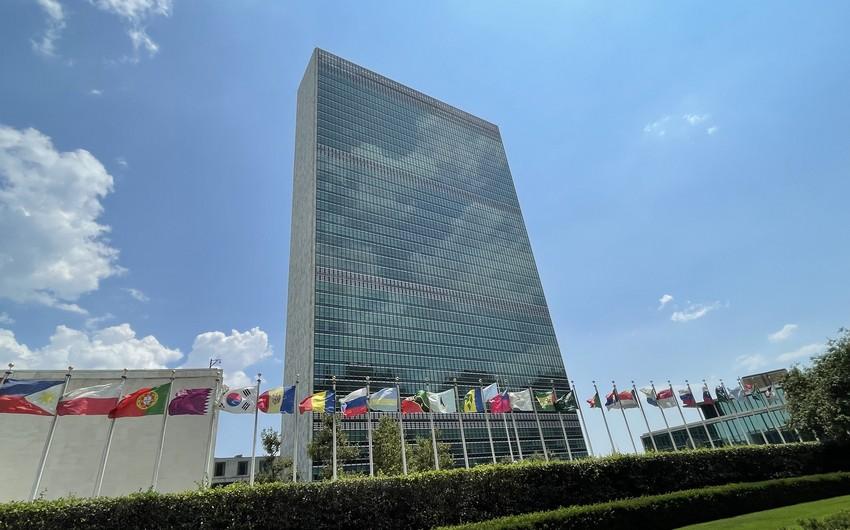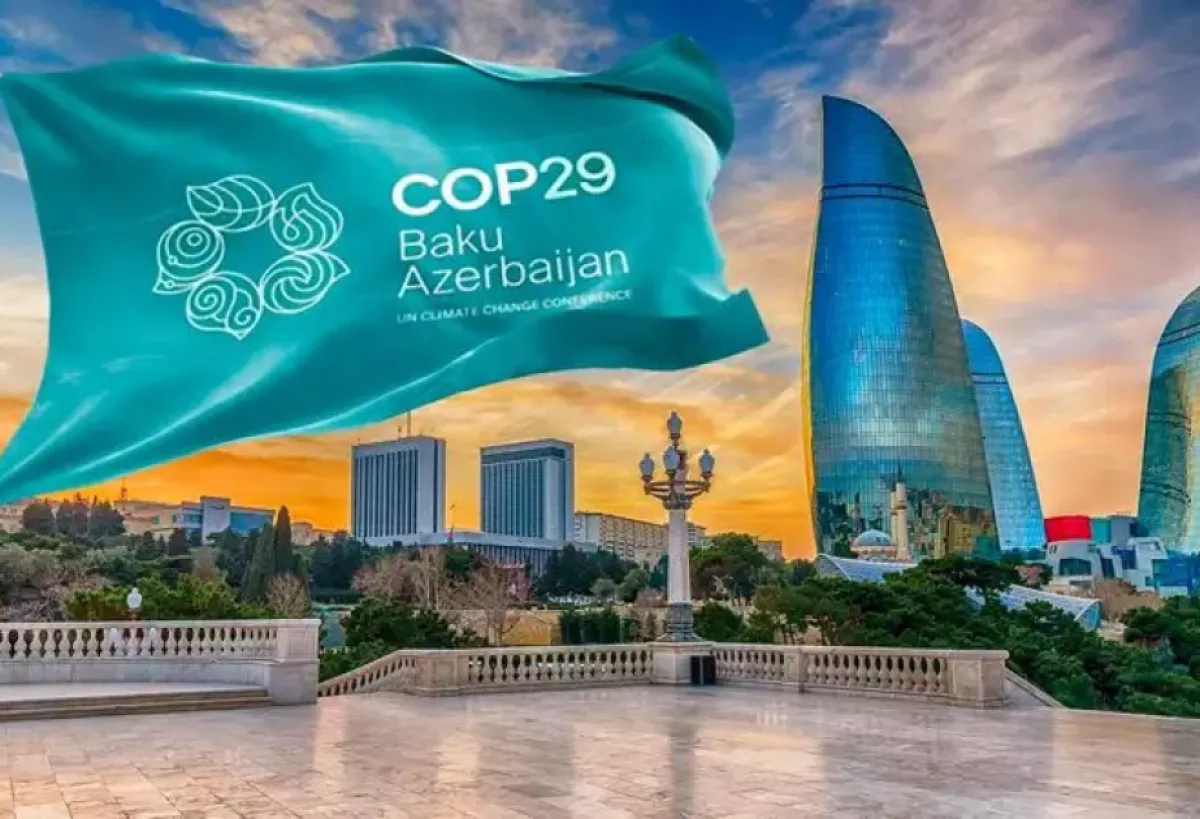A 33-year journey Azerbaijan and the United Nations
As is well known, President Ilham Aliyev is on a working visit to New York, where he is participating in the 80th session of the United Nations General Assembly. In this context, it seems important to recall the full history of Azerbaijan’s engagement with the UN.
On 2 March 1992, at a plenary session of the UN General Assembly, a resolution was adopted admitting the Republic of Azerbaijan as a member of the Organisation. From that memorable day, Azerbaijan’s interaction and cooperation with the UN began. And there is indeed much to remember.
It is particularly noteworthy that Azerbaijan served as a non-permanent member of the UN Security Council in 2012 and 2013. Twice, in May 2012 and October 2013, Azerbaijan chaired this body. In May 2012, President Ilham Aliyev initiated a high-level meeting on the topic “Threats to International Peace and Security Caused by Terrorist Acts.” During this session, the head of state provided a detailed account of Armenia’s terrorist actions against Azerbaijan. At the same time, he emphasised that “Azerbaijan is a country of tolerance, and we highly value this heritage from the past. Today, we strive to intensify our efforts to foster a spirit of partnership and brotherhood among representatives of all peoples and religions.”
During Azerbaijan’s second term as a non-permanent member of the UN Security Council, a historic high-level meeting was held on 28 October 2013 at Azerbaijan’s initiative, titled “Strengthening the partnership synergy between the United Nations and the Organisation of Islamic Cooperation (OIC).”
The purpose of this meeting was to discuss the current state of cooperation in maintaining international peace and security between the UN and the OIC—the second-largest international organisation by membership—and to hold discussions on implementing measures to further enhance partnership ties.

Azerbaijan has hosted a number of major events under the auspices of the United Nations. It is worth highlighting some of them in detail.
In 2016, Baku hosted the 7th Global Forum of the United Nations Alliance of Civilisations. The three-day event, titled “Living Together In Inclusive Societies: A Challenge and A Goal,” brought together representatives from over 140 countries. Participants included current and former heads of state, leaders of international organisations, prominent politicians, political scientists and experts, parliamentarians, civil society activists, youth and religious leaders, businesspeople, and representatives of charitable organisations.
In his address to the forum, President Ilham Aliyev outlined Azerbaijan’s plans for pursuing this course: “Multiculturalism for us is a state policy. We organized different events, addressing these important issues. Every second year the intercultural dialogue forum is taking place in Azerbaijan. We regularly host the Baku International Humanitarian Forum. And the main idea is how to bring representatives of different religions together and how to establish more understanding between us.”
Many participants at the Global Forum noted that Azerbaijan’s development as a “place of idea synthesis” at the crossroads of the Islamic and Western worlds could serve as an example for the international community.
Last year, Azerbaijan’s capital hosted the largest environmental forum—the Conference of the Parties to the UN Framework Convention on Climate Change (COP29). Much has already been written and said about the outcomes of this conference. It is worth recalling that COP29 featured an event immediately dubbed the “Baku Breakthrough”: the achievement of consensus on a new climate finance benchmark, the Baku Finance Goal.
This mechanism envisages mobilising $1.3 trillion annually for climate projects in developing countries by 2035. The central component of the new goal is the commitment of developed countries to allocate at least $300 billion per year to climate projects in developing nations—three times the previous $100 billion target established in 2009.

Azerbaijan has been a co-author of several key UN resolutions on humanitarian, human rights, economic, and cultural issues. The country was at the forefront of global mobilisation against the COVID-19 pandemic and advocated for fair and equitable access to vaccines.
Speaking at the 76th session of the UN General Assembly in September 2021, President Ilham Aliyev criticised developed countries for their reluctance to share coronavirus vaccines with developing nations. He noted that, as Chair of the Non-Aligned Movement, Azerbaijan had put forward a number of global initiatives. In particular, at Baku’s proposal, a Special Session of the UN General Assembly was held dedicated to combating the pandemic.
To draw attention to “vaccine nationalism,” Azerbaijan, on behalf of the Non-Aligned Movement, initiated the adoption of a resolution at the UN Human Rights Council to ensure fair access to vaccines for all countries, which was unanimously adopted.
At Azerbaijan’s initiative, the UN General Assembly adopts a resolution every two years on the issue of missing persons, the number of whom among Azerbaijani citizens reaches 3,990. The country considers it important to establish a UN Special Rapporteur on the issue of missing persons to draw global attention and ensure an effective resolution of this problem. Azerbaijan also takes pride in being the author and initiator of the biennial General Assembly resolution “Missing Persons,” which has been adopted by consensus since 2004.
In addition to the above, it is important to highlight Azerbaijan’s contribution to other forms of UN humanitarian activity, such as providing aid to those affected by conflict zones and allocating resources for disaster relief. As a donor country, Azerbaijan has provided humanitarian assistance to more than 140 states, and during the pandemic, supported over 80 countries both financially and with humanitarian aid.

Finally, it seems logical to address a key political and legal factor. Azerbaijan is a dynamically developing country that has restored its territorial integrity and sovereignty, putting an end to nearly three decades of Armenian occupation of its territories.
As is well known, the UN did not remain indifferent to Armenia’s military aggression against Azerbaijan. The General Assembly adopted two resolutions on the situation in Azerbaijan’s occupied territories, and the Security Council passed four resolutions demanding the immediate, full, and unconditional withdrawal of Armenian armed forces from Azerbaijan’s occupied lands. However, Armenia blatantly ignored these directives, demonstrating a flagrant disrespect for the United Nations.
Unfortunately, these documents remained largely declarative and were not implemented in practice by Security Council member states, facing cynical double standards. Today, however, these resolutions have been effectively implemented not by the UN or its permanent Security Council members, but by Azerbaijan itself, raising critical questions about the role and effectiveness of the Organisation in resolving international conflicts.
At the same time, the very existence of these resolutions undoubtedly provided an additional favourable legal foundation for Azerbaijan’s just actions in liberating its territories.
In this context, it is premature to discount the positive role of the United Nations. While the Organisation is not perfect—and perhaps cannot be, in a world where power often outweighs law—it remains an important platform for international cooperation. The UN is undergoing changes, and Azerbaijan stands ready to contribute actively to enhancing the effectiveness of this institution. All things considered, it is far better to work with the UN than without it.








